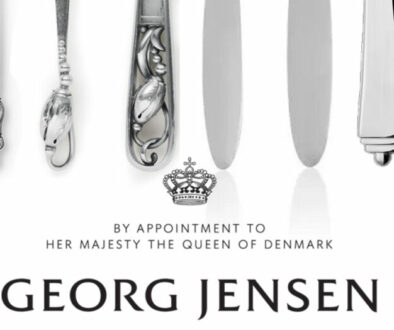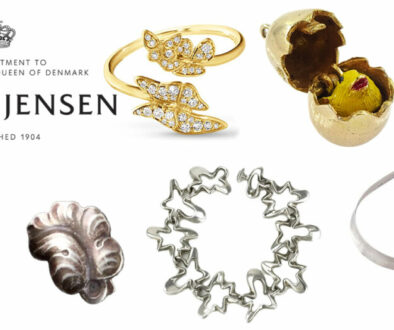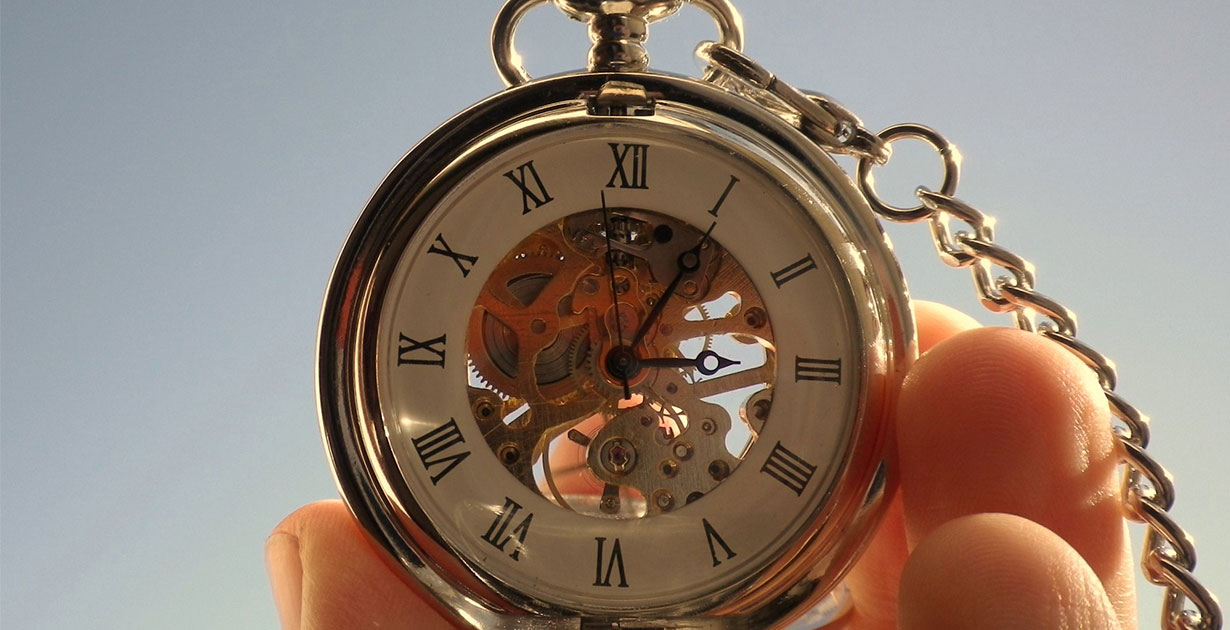
Pocket watches have been a popular fashion accessory and timepiece for centuries. From their invention in Nuremberg in 1510 to their mass popularisation in the 19th century, the pocket watch has served numerous purposes from simple timekeeping to use as a status symbol.
If you are considering selling your pocket watch, or having it valued, it is important to consider which route will suit you best. To do this, it is best to bear in mind the attributes of your pocket watch including its age, rarity, brand, and inner workings. All of these factors can affect the value of your pocket watch.
With this in mind, let’s answer some of the most-asked questions about pocket watches, and help you to understand the value of your timepieces.
How Much Are Old Pocket Watches Worth?
Pocket watches can be worth vastly different amounts of money depending on their attributes. As of January 2024, the most expensive pocket watch ever sold at auction is the Patek Philippe Henry Graves Supercomplication, which sold for $24 million in 2014. In 2015, the Vacheron Constantin Ref. 57260 was unveiled. This pocket watch is the most complicated watch in the world, with 57 complications. Although it was sold to a private collector, and the price has been kept secret, it is almost certainly the most expensive pocket watch ever sold.
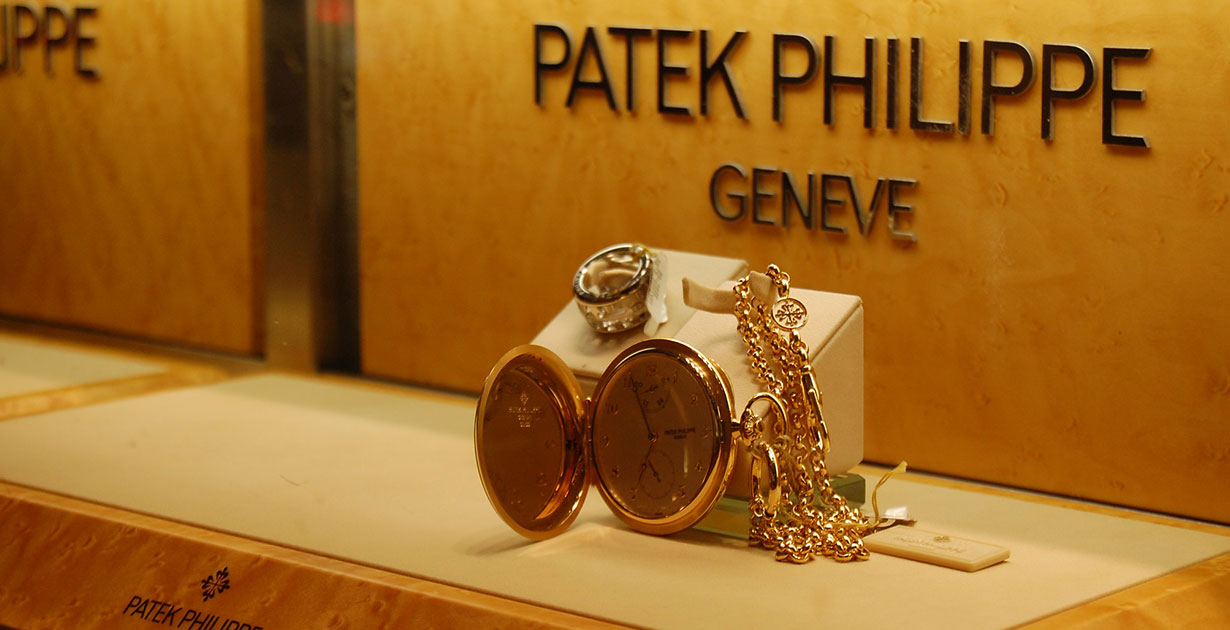
Most gold pocket watches are worth in the region between £1,000 and £10,000. However, there are lots of factors that affect the value of a pocket watch, the most obvious being the material that the pocket watch is made from. For example, a pocket watch could be made from 9ct gold or 18ct gold, with the higher purity being worth much more in terms of value. This is not simply due to the increased value of the gold, but also because 18ct gold pocket watches were better quality as they were created more affluent and upper middle classes. Other factors that affect the value of a pocket watch are things like the complications that may be in the watch. Complications include minute repeaters, moon phase indicators, or chronograph functions. Likewise, the condition of the pocket watch will greatly affect the value.
Which Are Good Pocket Watch Brands?
As with most luxury goods, the branding of your pocket watch will have a significant impact on its value. Some of the brands that are the most sought after by pocket watch collectors include:
- Waltham – Established in 1850 in Massachusetts, US. The company is well known for its innovative mass production methods, and helping to establish the watchmaking industry in America. Previously, watches had most often been imported from Switzerland or the UK. One of the most iconic Waltham timepieces is the Waltham Model 1857.
- Rolex – Rolex is perhaps one of the most famous watchmaking companies in the world. The company was established in 1905 under the name Wilsdorf and Davis, changing its name to Rolex in 1908. The company strived for luxury and accuracy in its watches. In 1910, a Rolex wristwatch became the first in the world to be awarded the Swiss Certificate of Chronometric Precision.Today, Rolex is synonymous with luxury timepieces. One of the most famous pocketwatches from Rolex is the Rolex Cellini.
- Tissot – Tissot was founded in 1853 in Le Locle, Switzerland. In the same year, the brand released the first-ever pocket watch able to keep two timezones. The company was also pioneering in the mass production of pocket watches in Europe. The Tissot Savonnette is one of the most iconic Tissot timepieces.
- Patek Philippe – Patek Philippe currently holds the record for the most expensive watch ever sold at auction, with a Grandmaster Chime Ref.6300A-010 selling at Christie’s for $31.9 million in 2019. Patek Philippe pocket watches are highly sought-after, with one of the most iconic being the Patek Philippe Supercomplication.
- Omega – Another Swiss watch brand, Omega was founded in 1903. The brand has provided watches for many famous exploits including the Apollo 11 mission to the moon in 1969, and to the Royal Flying Corps for use in World War I.
- Longines – Longines was founded in Switzerland in 1832, and is famous for its logo: a winged hourglass. The logo was registered in 1889 and has remained the same ever since – it is oldest unchanged active trademark in the world. Famous patrons of Longines include Albert Einstein and Amelia Earhart.
What Pocket Watch Do I Have?
Pocket watches are not only categorised by their brand but also by the watch faces.
Types of Pocket Watch Faces
Some pocket watches are open-faced, or Lepine, meaning that no cover protects the crystal or glass covering the watch face.
Another category of watch face is the hunter case. These pocket watches are characterised by spring-hinged metal covers for the watch faces. Half-hunter pocket watches are those that have a cover, but with a hole in the middle that reveals part of the watch face.
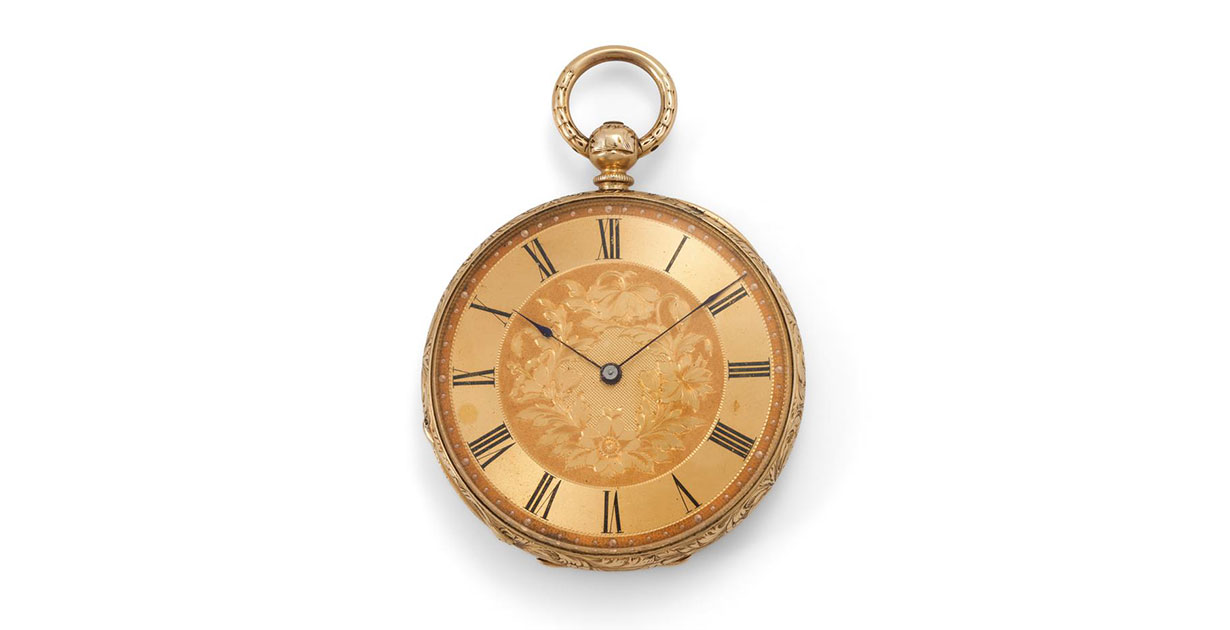
Mechanics & Complications
Then, you must consider the mechanical aspects of the watch. For example, does the watch have any complications? Complications are mechanical additions to watches that go beyond the simple function of telling the time.
Complications, or supercomplications, that you might find in your watch include repeaters, time zones, alarms, moon phases, and chronographs. Complications often add to the value of a pocket watch due to the intricate nature of the mechanisms and uniqueness of the timepieces created.
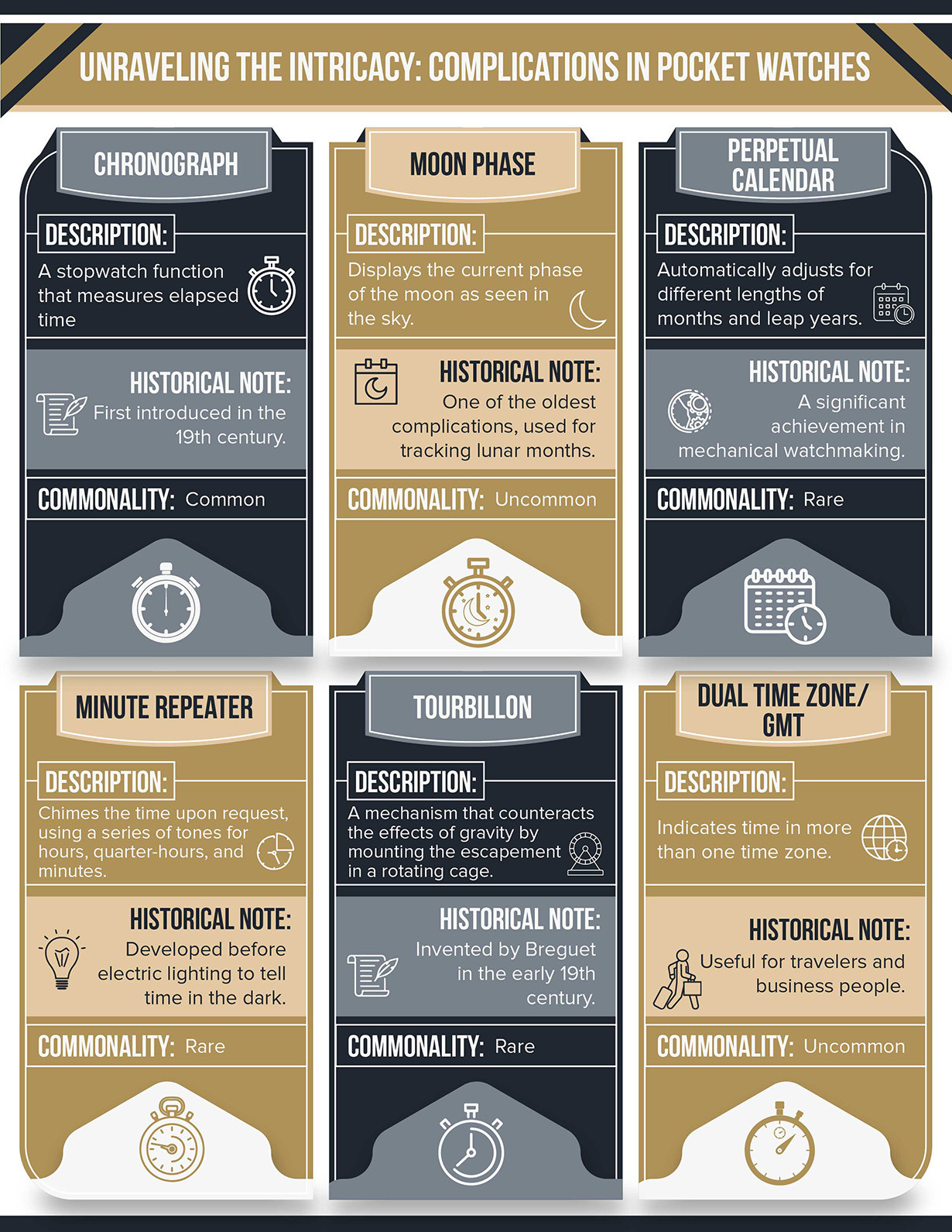
What Affects The Value of Pocket Watches?
Many factors will affect the value of your pocket watch. These include:
- Condition/Originality – Your pocket watch should be in remarkable condition, with no dents or scratches on the outside casing. A watch valuer will also ascertain the condition of the mechanisms inside the watch. Any breakages or obvious replacements will affect the value of the pocket watch.
- Complications – As noted above, complications can often add to the value of a pocket watch. Generally speaking, the more complications a watch has, the more valuable it will be to watch collectors. Repeating pocket watches are highly sought-after, with rare intervals being the most coveted.
- Case Material – A decent proportion of a pocket watch’s value is derived from the material of the case. For example, a 18ct gold pocket watch will hold significantly more value than a 9ct gold pocket watch with the same features. Silver and plated pocket watches are worth less still.
- Provenance – Pocket watches are also valued according to their provenance. If a pocket watch’s life can be traced back to its origins, with supporting paperwork and a fascinating story, then this will add to the appeal of the watch.
- Manufacturer – The branding of a pocket watch has a huge impact on its value, and some brands can command significant premiums. These brands include Patek Philippe, Rolex, Omega, and Vacheron Constantin.
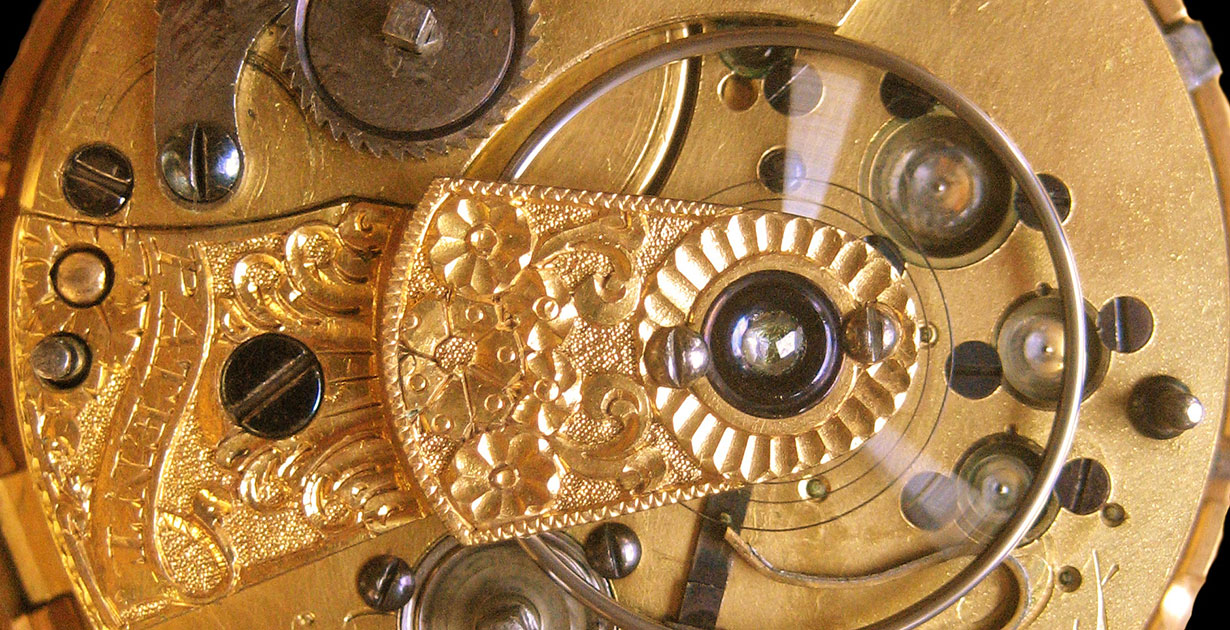
Can I Sell My Broken Pocket Watch?
You might wonder why anyone would want to buy a broken pocket watch. To the uninitiated, it may seem like a puzzling move, but there are several reasons that make these non-functional timepieces appealing to collectors and enthusiasts.
Historical Significance: Pocket watches often carry a significant historical value, representing the craftsmanship, design trends, and technological progress of their time. For many collectors, the backstory and heritage of a watch can be as important as its functionality.
Restoration Projects: For those passionate about horology, reviving an antique or vintage pocket watch can be a fulfilling project. A broken watch offers a chance to resurrect a piece of history, allowing them to sharpen their restoration skills.
Parts Salvage: Old pocket watches can serve as a treasure trove of parts, many of which are rare and no longer manufactured. Using these original components for watch repairs can preserve or even increase their value and authenticity.
Visual Charm: Even if they don’t work, pocket watches can be admired for their visual aspects, such as detailed case carvings, distinct dial designs, and the artistry of the movement. They can be collected as works of art or used as decorative pieces.
Investment Prospects: Some non-working pocket watches could be rare or coveted by collectors, making them valuable despite their broken status. Whether by restoring such a watch or merely keeping it as part of a collection, one can make a strategic investment.
Educational Opportunities: Dismantling, examining, and trying to fix a broken pocket watch can offer invaluable lessons for budding watchmakers and enthusiasts, providing a deeper understanding of mechanical watchmaking techniques and history.
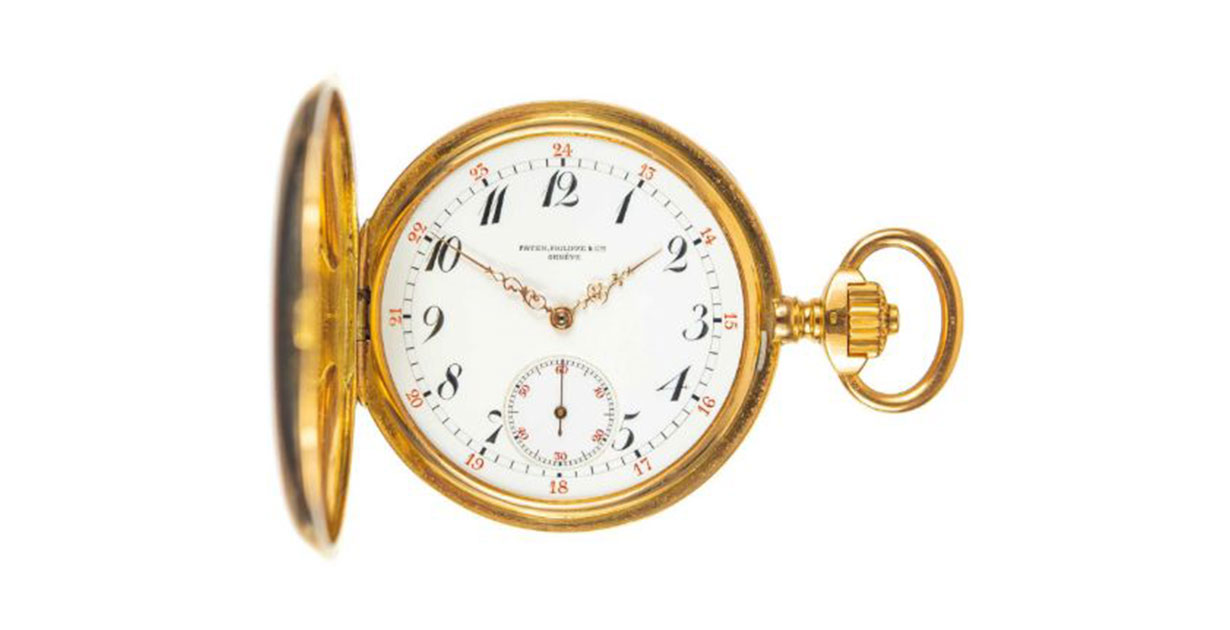
Who Buys Old Pocket Watches?
There are numerous pocket watch collectors both in the UK and worldwide. Here at Mark Littler Ltd we have a vast network of pocket watch specialists with whom we will work to help you achieve the best price for your watch. If you are interested in selling your pocket watch, then please get in touch for a free valuation.
What Are Pocket Watch Serial Numbers?
Serial numbers on pocket watches are useful for aiding in identification and valuation of your timepiece. Whilst not every pocket watch has one, nor should these watches be dismissed, serial numbers can indicate things such as how many of a certain model of pocket watch were made, and can also act as a guarantee of authenticity.
For more information on pocket watch serial numbers, please visit The Pocket Watch Database.
The website offers a comprehensive exploration of the historical and technical aspects of these fascinating timepieces.
The site also sheds light on the expertise and engineering involved in creating pocket watch mechanisms and provides guidance on identifying and dating watches based on dial designs and serial numbers.
Additionally, The Pocket Watch Database features useful tools and charts. This assists enthusiasts and collectors in accurately documenting and assessing their timepieces. The site also offers knowledge about specifications and production numbers.

